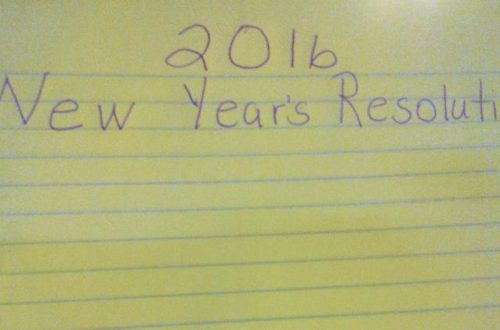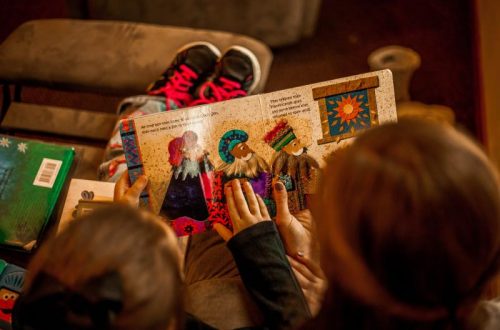What it means to be Bi-Racial- “Call me Mixed”
Imagine taking a paint brush and dipping it into a cup of thick red paint and brushing it across the stark white canvass in front of you. Then suppose you take a fresh paint brush and dip it into cup of thick yellow paint and brush it across the stark white canvass also. Looking at your canvass you now have red and yellow on it. But you still want something more. So you take both paint brushes and overlap the red and the yellow. Suddenly, an incredible, vibrant orange emerges.
I believe bi-racial people are one expression of God’s beautiful handiwork. Over the past 20 plus years, I have had the privilege and joy of being an aunt to some amazing people, three nieces and five nephews. Of the eight, six are bi-racial. They are a beautiful blend of black and white and they range in age from 30 to nine. I have seen them grow, play sports, go to school, date, cry, laugh, be silly and even begin families of their own.
However, in a world that doesn’t recognize the racial identities of bi-racial people it is difficult and often confusing for bi-racial children – especially when they are expected to identify with one race or another. I would ask that for the next two minutes you put yourself into their shoes. Imagine having a mother of one race and a father of another race and then being asked to prefer one over the other. Could you do that?
Questions such as: “What are you?” “Can I touch your curls?” “You’re not black!” “You’re not white!” might seem harmless. But, if you were constantly questioned about who you are simply because your skin color was different, how would you feel? What would you think about yourself? What would you feel internally?
I love my nieces and nephews because of who they are. I simply don’t see them as anything other than the amazing people they are. However, they will be the first to tell you that even though I feel that way, I don’t fully understand what it is like to walk in their shoes. I had to learn what it feels like to be them.
What might seem harmless to me or to you may truly be hurtful to them. Isn’t life like that though? We all have things about ourselves that cause us to feel rejection or hurt at one time or another. But what would happen if we first tried to understand one another and respond in love rather than criticize what we don’t understand?
Ecclesiastes 11:5 (NIV) says,
5 As you do not know the path of the wind,
or how the body is formed[a] in a mother’s womb,
so you cannot understand the work of God,
the Maker of all things.
We cannot know or understand the work of God. But we can trust Him. We can trust that He knows what He is doing. He is the Maker of all things!
I wonder if we in our limited understanding saw things the way God did for just a fleeting second, if we would proceed with our thoughts, actions and words the same way. In an effort to give understanding to the issues bi-racial children and young adults face I wanted to share with you a conversation between my nieces and one of my nephews.
The following is their conversation…
My 15 year-old niece described it this way, “Nope, I am not Hispanic. Not that I would mind being Hispanic. But, I am bi-racial. One of the things that upsets me is when I fill out a form for school or anything else…and I have to check a box for my race, there isn’t a box for bi-racial. I have to pick black or white. And, at times, I have been told what to pick.”
My 30 year-old-niece responded, “People think you’re Hispanic? They think I’m Puerto Rican!” At this point they all were laughing.
She continues, “When I was little in elementary school, it was really hard. I wasn’t accepted by either race. Black girls didn’t like me at all and were envious of me and criticized me about my hair. I was actually challenged by both races. I felt a lot of anger from having to prove myself all the time. So, I just decided to become Gothic. The “goths” accepted me and none of them cared if I was black or white.”
The 15 year-old responds, “Really? I have lots of black friends and I have lots of white friends … and I have a lot of mixed friends. Black girls call me white. It’s changed culturally now for the most part. One black girl said to me, ‘you don’t sound like a black girl, so I don’t like your voice.’ But really that’s about it, except when I was little. I went with my mom to a neighbor’s house to see if her little girl could play with me and her mom said, ‘no, she doesn’t play with black girls.’”
What about race?
At this point in the conversation I wanted them to explain what they want to be called. Because when they identify themselves they do not say African American or Caucasian. They say black and white and mixed.
My 30 year-old-niece said, “I am mixed. Don’t call me African American. I have never been to Africa!” (They all started laughing at this) Then she said, “In all seriousness, always say mixed.”
What about hair?
“I think the good is that you don’t always see people like me and my brothers and sisters. The bad is that some people don’t think you fit in and that makes me mad and sad when they act like I’m different – and like something is wrong with me,” said my nine year old niece. “Like there was a girl at school who made fun of me if my curls got frizzy.”
The 30-year-old responds, “Yea, when I was younger and went to the hair salon, the hairdresser said to me, ‘Are you upset because your mom made you mixed?’ I told my mom, she should have thought about that before she had me, because I hated my hair when I was little. I wanted straight hair like everyone else.”
The 15-year-old joins in, “Yea! I didn’t appreciate my curls when I was little. I didn’t like them until I got older. But now there are so many options. You can straighten your hair or wear it curly.”
(I have to interject here that from the time the girls could talk I was always telling them I would gladly give them my straight hair for their curls.)
They all started laughing, and the youngest replies, “Oh Aunt Sherry!” And just shakes her head and says, “No, no, no.”
Then she proceeds to us what it is like to be her at age nine. “I think the good is that you don’t always see people like me and my brothers and sisters. The bad is that some people don’t think you fit in and that makes me mad and sad when they act like I’m different – and like something is wrong with me just because my hair or skin is different. Like there was a girl at school who made fun of me if my curls got frizzy.”
Now up until this point, the girls were doing all the talking. So I asked my 20-year-old-nephew what he thought about all this.
“Um, I agree with them. Everyone wants to touch my hair. And, I haven’t ever really dated a white girl. It’s the black girls who like me.”
In Psalm 139:13-14 (NIV) it says,
13 For you created my inmost being;
you knit me together in my mother’s womb.
14 I praise you because I am fearfully and wonderfully made;
your works are wonderful,
I know that full well.
God knit us together. He formed us. We are fearfully and wonderfully made. Black, brown, white, or mixed … we are all knit together by Him.



